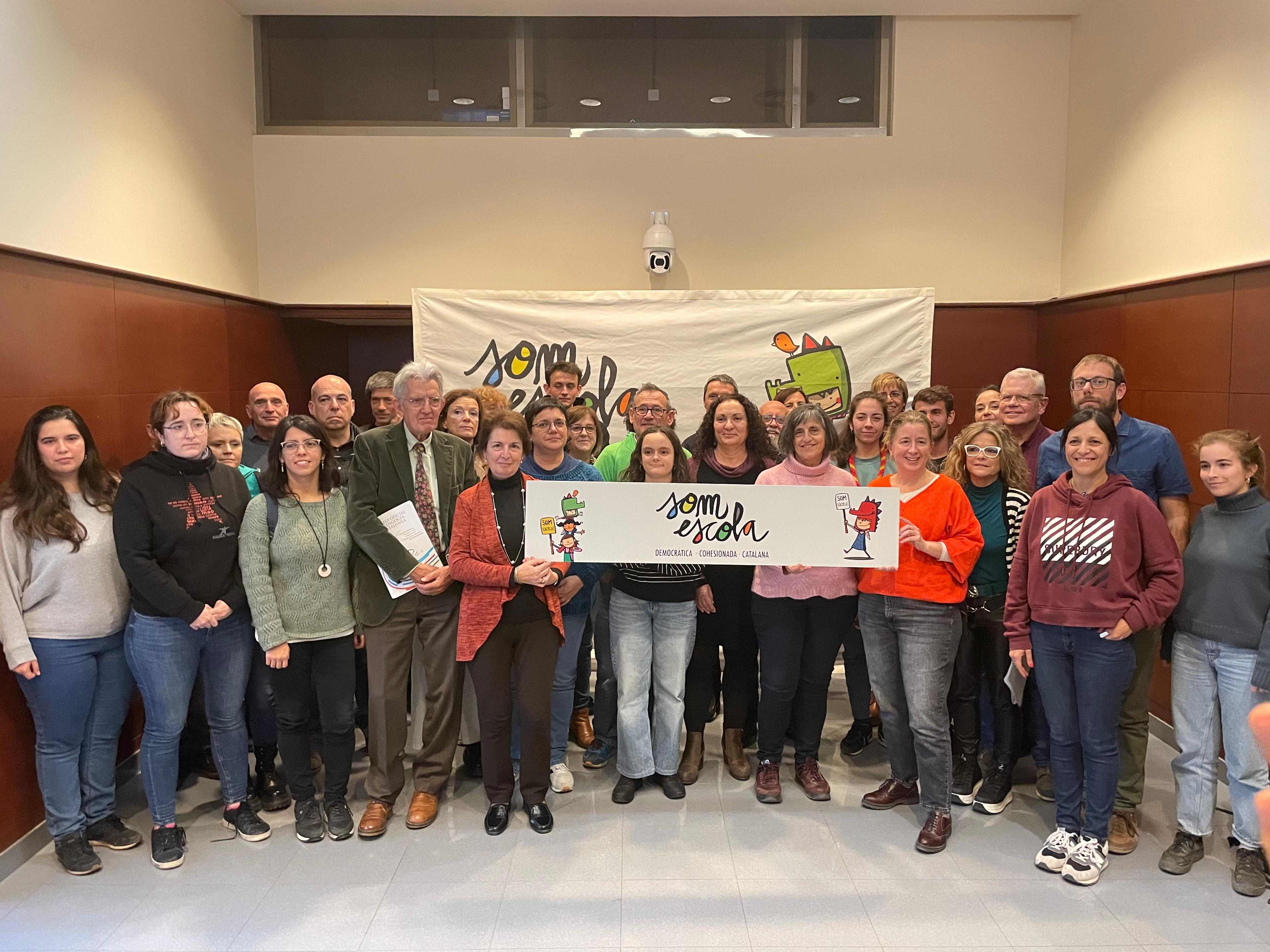A united offensive by Somescola. The platform which consists of more than 60 organizations and groups committed to the Catalan school model has stepped forward to debunk the falsehoods being propagated about the language immersion system, coinciding with the arrival in Catalonia of the mission by MEPs to analyze the issue. The EU visit has a clear political bias, taking into account that it has been orchestrated by the European parliamentary groups of the right, the far-right and liberals: of the seven meetings organized on Monday, first day of the visit, six were with Spanish nationalist voices and only one was with a defender of the Catalan model. The last of these was with the spokesperson for the USTEC education trade union, Iolanda Segura, who after meeting the mission appeared before the media to deliver a strong opinion: "They arrive with their conclusions made, they listened to us because they were interested in making us nervous and seeing us get distracted in our responses."
Precisely for this reason, in Monday's meeting, the USTEC spokeswoman spoke on behalf of the entire Somescola platform, of which she is a part, with the intention of defending language immersion in a unified way. And she did so by delivering a report to the members of the mission in which the main characteristics of the Catalan school system, the data on its results and the answers to frequently asked questions are contained.
In this regard, the two-page summary of the document emphasizes four key characteristics of the Catalan school model: firstly, the importance of not separating students by origin or language, to avoid "dividing society into separate linguistic communities". Secondly, it highlights "the compensatory and transformative role of the Catalan school", as it allows students who do not have contact with Catalan outside school to have equality of conditions in terms of social, employment and cultural opportunities. The report also asserts that, despite the fact that about half of all students do not use Catalan in their family environments, the immersion system is the "comparatively most effective methodology" which allows students to have "high and similar" results in both Catalan and Spanish. And finally, the report underlines "the great consensus [in Catalonia], absolutely transversal at the educational, social and political level" that this model has in terms of support.
Debunking the falsehoods
On the other hand, the document also aims to debunk "the principle falsehoods that are said about the model" with objective data. "We emphasize that the Catalan school does not discriminate or harm Spanish-speaking students or those of migrant origin, that it fully guarantees the learning of Spanish, that schools are not monolingual spaces, that the Catalan school complies with all current legislation", says the text, which presents data to support its claims. Finally, the report also rejects any attempt to link the recent poor results of Catalan students in the PISA report to the immersion system, arguing that in fact the inequalities in results are not related to language or origin of students, but rather, social and economic factors.

